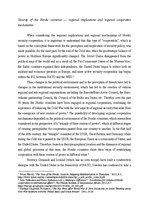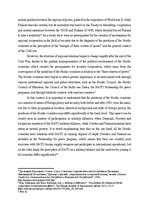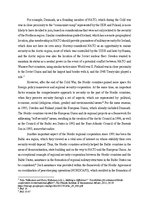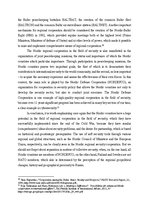-
Security of the Nordic Countries
The Nordic Defense Cooperation is one example of high-quality regional cooperation in the field of security, because over 11 years significant progress has been achieved in many key sectors of our time, a clear example is cybersecurity.11
In conclusion, it is worth emphasizing once again that the Nordic countries have a huge potential in the field of regional cooperation in the field of security, which they have successfully implemented since the end of the Cold War, because they have similar (comprehensive) ideas about security problems, and the desire for partnership, which is based on historical and geostrategic prerequisites. The use of soft security tools through various regional and global structures, such as the Nordic Council of Ministers and the European Union, respectively, can be clearly seen in the Nordic regional security cooperation. But we should not forget about separation in matters of collective security, when, on the one hand, all Nordic countries are members of NORDEFCO, on the other hand, Finland and Sweden are not NATO members, which also is determined by the perception of the regional geopolitical changes, history and geographical proximity to Russia.…
Norway, Denmark and Iceland (which has no own troops) have built a constructive dialogue with the United States in the framework of NATO, Sweden has continued to take a neutral position between the regions of power, guided by the experience of World war II, while Finland was also neutral, but its neutrality was based on the Treaty on friendship, cooperation and mutual assistance between the USSR and Finland of 1948, which literally forced Finland to take a neutrality. As a result, there were no prerequisites for the creation of mechanisms for regional cooperation in the field of security due to the disparity of the positions of the Nordic countries in the perception of the “triangle of three centers of power” and the general context of the Cold war. However, the structure of regional relations began to change rapidly after the end of the Cold War, thanks to the gradual homogenization of the political environment of the Nordic countries, which created the prerequisites for security cooperation, which came from the convergence of the positions of the Nordic countries in relation to the “three centers of power”. The Nordic countries have begun to attach greater importance to security issues both through various institutional regional and global structures, such as the Nordic Council, the Nordic Council of Ministers, the Council of the Baltic sea States, the NATO Partnership for peace programs, and through bilateral contacts with various countries.
PDF formāts.




